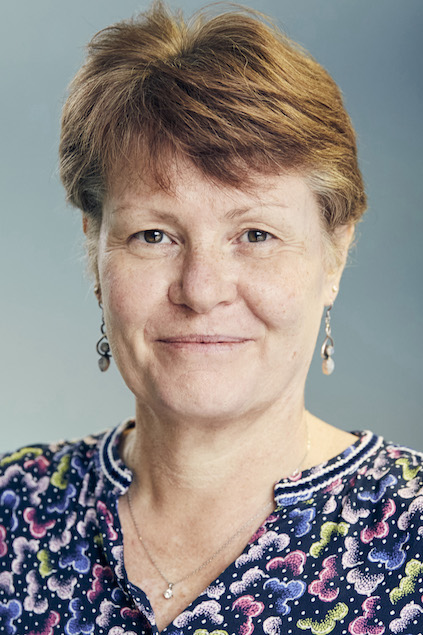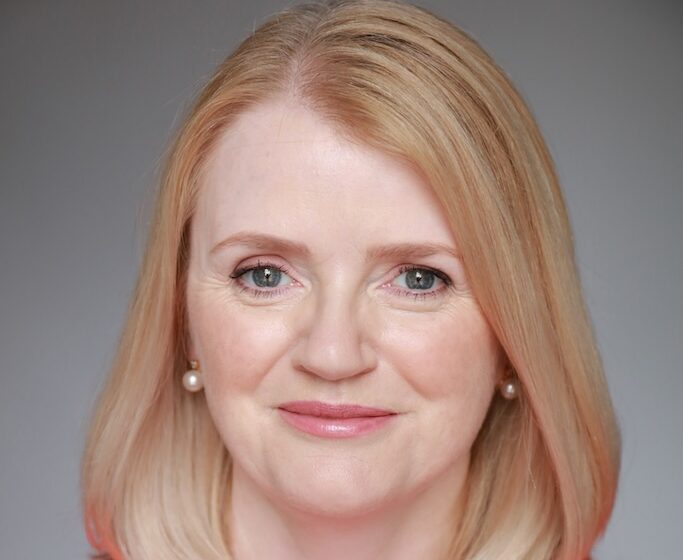Active reps make a real difference for members
MEET YOUR REPS: Strong local representation delivers real benefits for MiP members and helps to build effective partnerships with employers. Two of MiP’s most experienced reps, Dave Whatton and Sara Saville from the Black Country ICB, talk about negotiating organisational change and supporting MiP members through turbulent and uncertain times.

The Black Country Integrated Care Board (ICB) boasts one of MiP’s most active membership groups, with five reps, including one dedicated to supporting board-level managers. This success is in no small part due to the efforts of two of the union’s most experienced activists, Sara Saville and Dave Whatton.
A former fire fighter, Dave (pictured left) was on the national executive of the Fire Brigades Union for many years, serving as treasurer and vice president, before joining the NHS as a commissioner in 2013. Sara, a qualified podiatrist, was a union rep for the Society of Chiropodists and Podiatrists before a series secondments took her into management jobs in the early 2000s.
Now the ICB’s head of corporate affairs, Sara looks after the governance and general running of the organisation while Dave is a transformation manager in Walsall ‘place’, one of four areas which comprise the ICB, working with local voluntary groups and communities to improve access to healthcare and tackle the root causes of ill health.
We’ve levelled up
As MiP reps, Dave and Sara took part in the management of change negotiations for the merger of four CCGs – Walsall, Dudley, Wolverhampton and Sandwell – into one, followed by the transition to an ICB last year. “If Walsall had a better policy than the other three, we wanted to make sure the whole organisation adopted that policy,” Dave explains. “And I think in almost every case we’ve levelled up.”
With so many organisational changes, one important win was securing three years’ pay protection for staff moved to a lower-banded post, and four years’ excess travel allowance regardless of length of service. Long service awards were a particular favourite, she adds: “In Walsall we got £200 in high-street vouchers, so we made sure they did that for everybody.”
Before the merger, only Walsall CCG had an agreement which fully recognised trade unions. The staff councils operated by the three other CCGs tended to “nod through” management proposals, Dave explains, so winning ICB-wide union recognition was another key objective. The ICB now has a separate committee for formal negotiations between management and unions, alongside a consultative body, which includes non-union members, BAME network representatives and health and safety reps. “It’s a bit unwieldy, but it works,” he says.
Jobs at risk
This new machinery will be tested again soon as negotiators get to grips with 30% cuts in ICB running costs, which may result in some job losses among the board’s 500 staff. “We’re still trying to pin down what that means in terms of where people will be working next year,” says Dave.

Also likely to have a “massive impact”, warns Sarah (pictured right), is the fate of the troubled Dudley Integrated Health and Care Trust, which faces closure after NHS England withdrew support for the ‘fully integrated’ care model in 2021, potentially placing jobs at risk. “We transferred a lot of staff from the CCG into that organisation and morally there’s a strong feeling that they ought to come back to the ICB,” she says.
Dave and Sara are also in discussions about moving sickness absence policy towards an approach that promotes health and wellbeing and supports staff experiencing long-term health issues such as the menopause.
“We’re arguing that, if you’ve got a condition that hasn’t been stabilised or diagnosed, or a treatment plan that’s keeping you fit for work, the sickness absence triggers shouldn’t apply until that’s been sorted,” Sara explains. “These conditions should be managed in a more supportive way, rather disciplining or sacking someone because they’ve been off work three times, which is how current policy can work.”
Be part of the decision-making process
Regular meetings for MiP members at the ICB are now planned, but Dave would welcome like to see MiP develop a formal branch structure at employer level. “Face-to-face branch meetings draw people in because non-members want to know what’s going on,” he says. “Being seen to be active and letting people be part of the decision-making process is a very good recruitment tool. We need to develop an branch structure for MiP, which we haven’t really got at the moment.”
He sees recruitment potential too in MiP’s campaigning work to counter negative stereotypes about NHS managers, discussed at MiP’s first national meeting of local reps in Birmingham in March. “We talked about getting people to imagine a consultant in an operating theatre when the table and all the equipment disappears,” he says. “Because it’s not doctors who put all that in. It’s managers doing that hidden work that nobody really cares about because it’s portrayed in a quite unattractive light.”
- If you’re interested in becoming an MiP link member or rep, contact MiP organiser, Rebecca Hall: r.hall@miphealth.org.uk.
Related News
-

Scott Diamond: “As a paramedic, you can talk to absolutely anyone about anything!”
Scott Diamond, MiP’s National Committee rep for Scotland and a former paramedic, talks about resilience, collaboration and why managers need to make a deep connection with people. Interview by Craig Ryan.
-

Sarah Carter: “As a care home manager, you can see the difference you make to people’s lives”
MiP National Committee member Sarah Carter tells Craig Ryan about her ‘incredibly rewarding’ switch from the NHS to social care and the ‘unique and very special role’ of managing a care home.
-

Catherine McCarthy: If I hadn’t joined MiP, I would just have left the NHS
Programmer, teacher, business analyst and project manager: Catherine McCarthy beings a wealth of experience to her new role as MiP rep at the Health Research Authority. Interview by Craig Ryan.